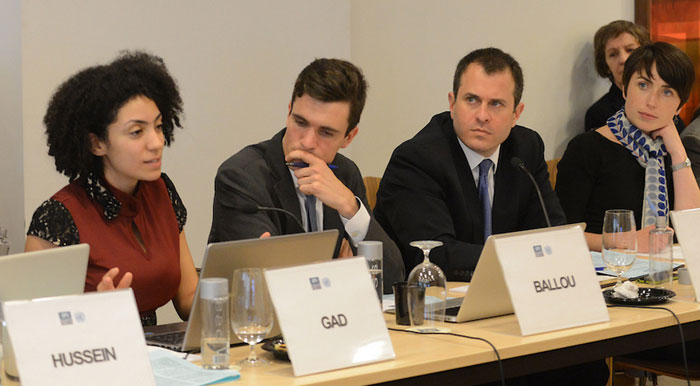
The effects that new technologies can have on constitutional processes was the topic of this November 22nd IPI roundtable discussion. Approximately five new constitutions are written around the world every year, and their legitimacy is increasingly influenced by a new level of public participation in their drafting, not merely by a plebiscite on the final text. As rapidly advancing technology changes the way that governments and citizens interact, what role are new technologies playing in constitutions?
A number of insights emerged from the event:
1. New technologies can increase public participation in constitutional processes, improve transparency, and expand access to expertise for constitution drafters. Dedicated websites, mobile messaging services, and social media tools have been used in a variety of settings to consult citizens about draft texts, disseminate information to the public, and engage constitutional experts from around the world.
2. However, the possibilities for wider public participation can be accompanied by limits to the depth of consultation, as many new tools risk emphasizing the quantity of input over the quality of input, or “buzz” over substantive debate. As such, questions remain as to how much weight should be given to popular opinion as expressed in online platforms or over mobile phones.
3. New technologies can play a key role in giving voice to marginalized communities—those not heard in traditional public fora or isolated by distance. However, they can also create echo chambers and emphasize outliers. And those without access to technology—for example, lower socioeconomic groups or traditional leaders—may be left out of the conversation.
4. While new technologies provide a medium for expressing dissenting views about a draft constitution, many governments are also curtailing freedom and privacy online, and individual safety may be threatened during this politically sensitive time as a result.
5. Many governments do not have the capacity to process the deluge of data that technology-driven consultations can bring. The international community and constitution assistance providers may have a role in helping governments to analyze this information and incorporate it into the constitutional process.
In general, new technologies should not be seen as a substitute for traditional practices of public consultation; rather, they can serve as additional tools to help bridge the gap between constitution drafters and citizens. The key question remains how to exploit their benefits while managing the predictable and unpredictable risks that they introduce. The event was cosponsored by the UN Department of Political Affairs.
131127 IPI Meeting Brief_New Technologies and Constitutional Processes.pdf







